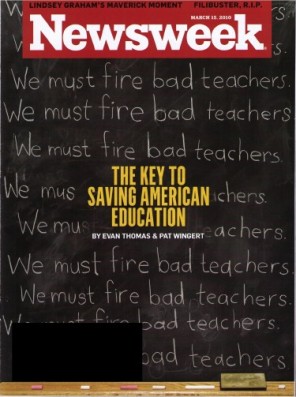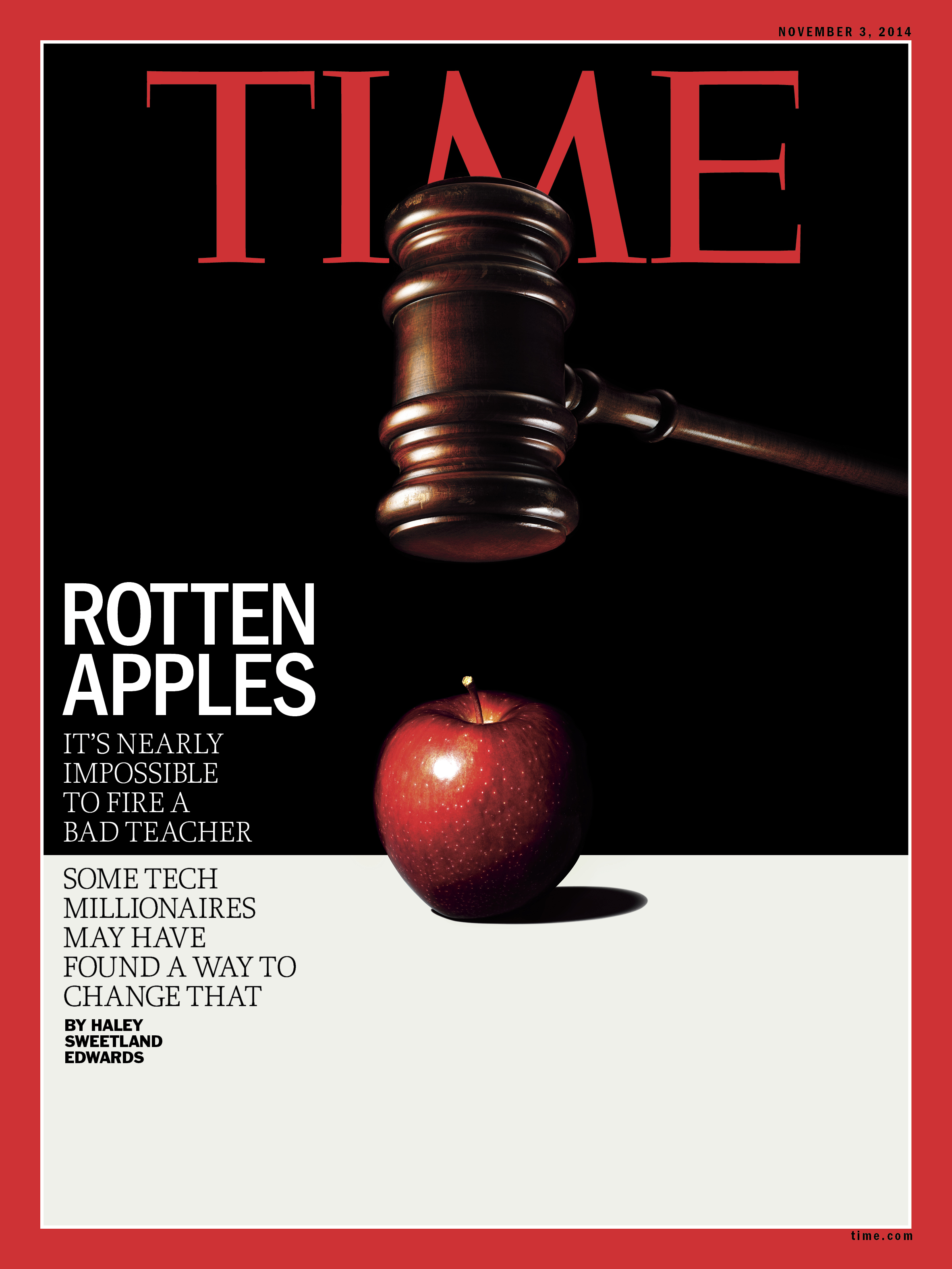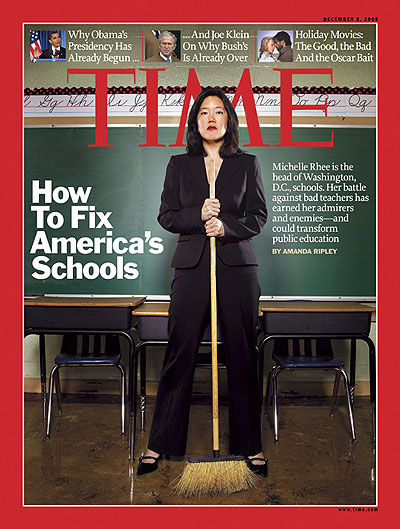No doubt, many children aren’t getting the general or special education teachers they deserve, especially in poor schools. There probably is a real teacher shortage.
However, school reformers have been squawking about a teacher shortage for years. If policymakers cared, they would have put programs into place to address this shortage. They would have sought to correct problems facing teachers.
The reality is, they don’t seem to want to fix the teacher shortage. Hmm. Why is this?
Here are 5 reasons why the teacher shortage hype is really about privatizing public schools.
1. Betsy DeVos
When has Betsy mentioned a teacher shortage?
Here’s an article, “Are Trump and DeVos Waging a War on Teachers?” It doesn’t sound like they’re working to get teachers into the classroom when they’re aiming a cannon at them!
Betsy is on her “Rethinking Schools” tour. My guess is vouchers and technology that replaces teachers are what she’s dreaming about.
2. Teach for America
How did business leaders respond to the so-called teacher shortage in the 1990s?
Corporations poured millions into Teach for America, and crowned Wendy Kopp teacher queen, even though she never taught a day in her life.
Business bigwigs jumped up and down then, and continue to do so today. They love the 5-week-trained, cheap, revolving door corps members (see all the donors here).
They have never had anything good to say about career teachers who studied kids and schooling, who chose a teaching career because it was a calling.
- They made sure school budgets would be cut and refused pleas for lowering class sizes.
- They screamed for more accountability through high-stakes testing of even our youngest learners.
- They pushed to make all children college ready—for jobs many still can’t find.
- They hated the teachers unions.
Now TFA novices compete for jobs against real teachers. To land a two year teaching gig they go to Happy Hour.
3. The Media and Teacher Morale
For years, we’ve known about problems involving teacher morale. Books about teacher burnout were flying off the shelves by the early 1980s.
Researchers know that blaming teachers for the ills of society—using them as scapegoats—will not make good schools or productive students. But where do we find anyone in the media lifting teachers to their rightful place professionally?
For years, corporations and news outlets have blamed teachers subtly, if not outright. Former FOX news host Bill O’Reilly has been outspoken about teachers. Jonathan Alter, Campbell Brown, John Stossel and others have used their positions to slam the teachers union.
The media has unfairly painted older more experienced teachers as ineffective with one broad stroke.
Here are two examples:
Diane Ravitch reminded me that I forgot Michelle Rhee.
I wrote about the TIME article. HERE.
This bashing has never been useful.
Peter Hart wrote “First, Bash the Teachers: Media Find a Scapegoat for Educational Failure,” What goes mostly if not entirely unexplained amid these anti-teacher assaults is any coherent explanation of what it is that teachers unions have done or failed to do to promote excellence in schools.
In the past, the states with the best schools, and the highest test scores, were from states with strong teachers unions.
4, Recruitment
Many teachers retired early due to the troubling reforms put in place at their schools. Or they lost their positions due to school closures.
Where is the effort to recruit these teachers to return to the classroom? Most districts still have their employment records. This would be an easy thing to do–if they wanted to do it. Teachers could also be placed in part-time positions.
Where’s any attempt to recruit teachers who were pushed out in the first place? How much creative brainstorming has gone into getting career teachers back into the classroom?
Some universities provide financial support to recruit young people into teaching, but that’s not enough and a little too late.
5. Technology
Most have come to realize that technology is the end game when it comes to public school reform. Once this realization sinks in, all the other school reforms make sense.
Harvard Business School professor Clayton Christiansen’s book Disrupting Class: How Disruptive Innovation Will Change the Way the World Learns claims that by 2019 technology will replace brick-and-mortar schools.
There’s been no proof this is a better way to learn. But there’s power and money behind the technology push. For example, Laurene Powell Jobs was able to get four TV stations to sponsor her program XQ Super School.
Technology is also trendy. Many adults are addicted to it, and it is being made to sound like a panacea to replace teachers and schools. The only role for teachers will be as facilitators to make sure students do what they should on the computer.
This push for classroom technology also involves why reformers play this hypocritical game of acting like they want to recruit good teachers, while they do everything in their power to demonize and drive them out of the classroom.
If they create a teacher shortage, it’s easier to replace teachers with computers and facilitators. Parents won’t ask questions. It’s acting worthy of an Oscar!






Is the teacher shortage a hoax?
Inquiring minds want to know.
I found the quote below from the article very interesting:
“Many teachers retired early due to the troubling reforms put in place at their schools. Or, they lost their positions due to school closures.
Where is the effort to recruit these teachers to return to the classroom? Most districts still have their employment records. This would be an easy thing to do–if they wanted to do it. Teachers could also be placed in part-time positions.
Where’s any attempt to recruit teachers who were pushed out in the first place? How much creative brainstorming has gone into getting career teachers back into the classroom?”
I would LOVE to be back in the classroom!
Me too, Debbie! Let them drop the high-stakes testing and fix the crummy conditions! Those worried administrators need to send us flowers! Thank you!
Nancy, you’ve done it again with another outstanding post. State governors and legislators are also culpable. Most of them passed these bad laws & have yet to roll back any of them.
It’s time to get the ALEC laws repealed.
Thank you, Joan. I appreciate it and totally agree..
While it may be true that teachers have been chased out early or just chased out by the demoralizing test and punish policy, and while many in government would rather tech out teaching or farm it out, to raw recruits, I would submit that these very policies will produce a teacher shortage that is real and lasting. Evidence of that is seen in the dropping numbers of students in the teaching programs. On the rural frontier, teachers are leaving for suburban jobs in greater numbers, always the first sign that the numbers are not out there.
If salaries in the private sector ever begin to rise again, we will go back to the 1990s, when finding good teaching prospects was difficult.
Thanks, Roy. Good observations.
Nancy, I agree with your observations, but in my experience the shortage is very real. In the rural school district board I serve on we received zero applications for a special education teacher opening. In my role as school administrator I have had difficulty finding math, science and SpEd teachers. My oldest son is a senior at a state school and there are fewer than 30 students graduating in his cohort with a SpEd license. So for me the shortages are real.
Maybe. But I think teachers are being intentionally driven out of their profession. If things are so bad, why do we see walkouts? Why aren’t salaries, healthcare, and benefits improved? Scroll down to see all the $$$ donated to Teach for America. It’s easy to see the priority of business when it comes to teaching. https://teachforamerica.app.box.com/s/thuj0i8fjh5cavwaw0ll24z1o9cuqa4n
We can debate all day about the reasons – teachers being driven out because of testing, poor salaries, healthcare and benefits, the media and the general publics negative views about teachers and unions, unsafe working conditions, and the list goes on, but when I talk to fellow administrators, especially in rural areas there is most definitely a shortage of applicants. So whatever the overriding issues, I don’t see shortages as a hoax. It is very difficult to keep band, music, arts, language and shop classes when you don’t have applicants for the positions.
I understand what you’re saying, Peter. I don’t doubt that as more teachers leave, administrators have trouble finding teachers. I think I start out by saying this with this post.
The deception however involves those reasons. If policymakers were truly concerned, they would be working to address the needs of teachers. That’s my point. They aren’t doing this.
Thanks for sharing your difficulties. It truly is a concern to think those subjects might not be available in the future.